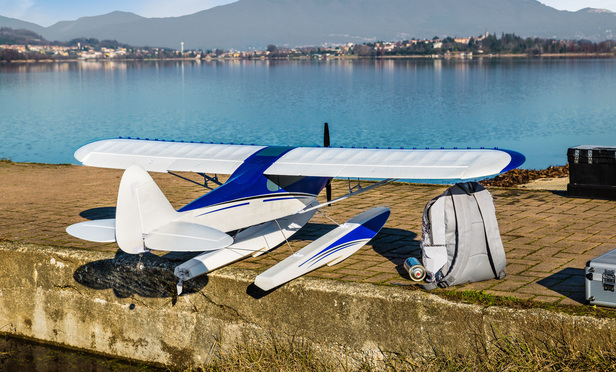His new hobby paid off when the U.S. Court of Appeals for the D.C. Circuit on Friday sided with Taylor, a senior counsel at Geico who represented himself. He challenged the Federal Aviation Administration over the legality of its 2015 Registration Rule, which requires the registration of unmanned small aircraft, including model planes and hobby drones.
Taylor argued the rule violated the 2012 FAA Modernization and Reform Act because that law includes a provision barring the FAA from promulgating “any rule or regulation regarding a model aircraft.”
The agency argued that under long-standing statutes, aircraft are required to register before taking off, even though the FAA has never interpreted that to apply to models. The rule was just a choice to “cease its exercise of enforcement discretion,” the FAA said.
“Statutory interpretation does not get much simpler,” Judge Brett Kavanaugh wrote in the decision. “The Registration Rule is unlawful as applied to model aircraft.”
An FAA representative said Friday that the agency is “carefully reviewing” the decision and is considering its options. “The FAA put registration and operational regulations in place to ensure that drones are operated in a way that is safe and does not pose security and privacy threats,” the representative said.
Taylor said the decision, which vacates the rule with respect to model aircraft and hobby drones, was “encouraging.” He’s never sued the government on his own before but felt compelled after the FAA did something “so clearly illegal.”
“They figured nobody was going to challenge them, and so I did,” Taylor said.
The FAA’s registration fee wasn’t much, just $5 per aircraft. Taylor estimates he has between 10 and 20 planes and drones, so his total registration would have been $100 at most. That’s a fifth of the docketing fee to file his lawsuit. Asked if it was worth it, Taylor said this wasn’t about money. “It was all on principle,” he said.
The court did not agree with a second part of Taylor’s argument where he challenged an advisory notice that prohibits flying model aircraft in restricted areas. There’s a statute of limitations in challenging advisory notices, and Taylor filed his challenge too late, the court said.
Those restrictions include much of the area around Washington, D.C. Taylor lives just outside the district.
He said the lawsuit gets at larger issues spawning from the increased popularity of drones and subsequent increase in regulations for small, recreational aircraft. Today’s decision means that even though Taylor doesn’t have to register his models, he’s still limited in where he can fly them.
He said that fear the FAA could come after him for any number of reasons chills his desire to fly.



